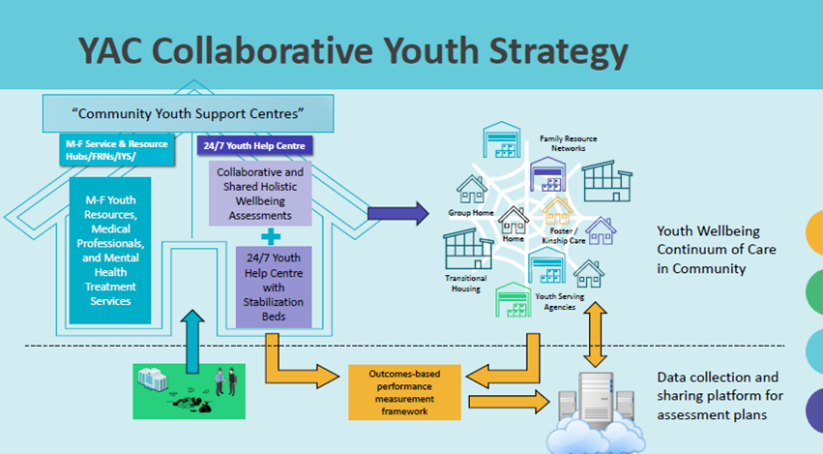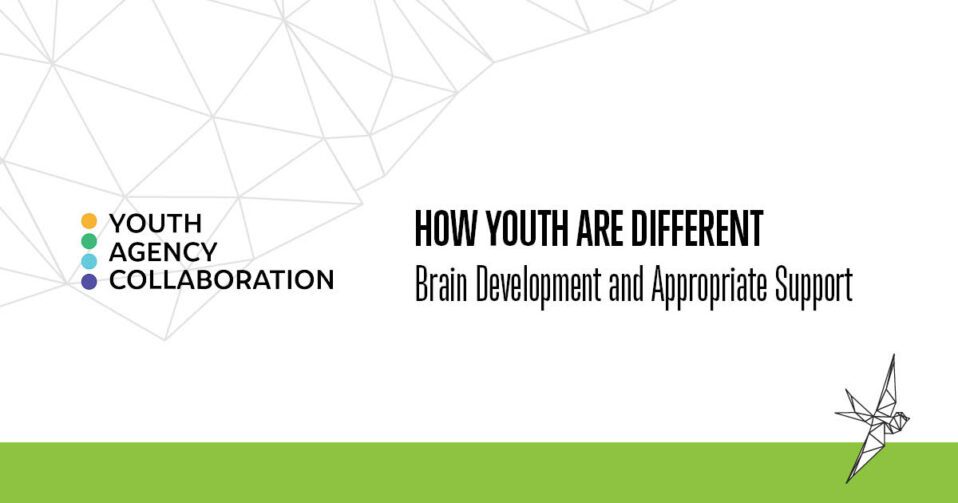Our previous strategies to serve youth have been focused too much on symptom solutions and not enough on addressing the root cause of their difficulties: family and community breakdown and the untreated trauma in young people as a result. In addition, with the competitive funding landscape, we viewed our different agencies as rivals, instead of fostering collaboration between us. Overall, the current system does not consider long-term outcomes for youth – being merely reactive rather than proactive in terms of potential results from any given program or initiative. The voices of those young people served by us were heard loud and clear: they sought a safe environment where they would not be forced to rehash traumatic stories every time support was needed while also receiving a consistent continuum care that adheres to similar ethical principles across all organizations involved with providing assistance.
Brain Development
Research establishes that the frontal cortex and reasoning are of the brain continue to develop until the age of 25 in healthy resilient brains. This development can be altered or slowed if a youth is in crisis, and we cannot presume a fully reasoning adult brain just because someone is over 18. In addition, children and youth often have difficulty understanding what has happened to them in traumatic situations, and the ways they react can be highly shame-based and disruptive to their brain development. This often also negatively affects their ability to have healthy relationships with themselves and others.
Therefore, placing chronological expectations on young people who are the age of “adulthood” (18) in our systems, before their rational brains have fully developed, and expecting them to find benefit and support through the same systems that service adults, with the expectation that they have all of the life skills and tools as those adults, is setting the young person and the system up for failure.
Establishment of Community Youth Support Centers
One of the priority Youth Agency Collaboration innovations is creating small, community-based 24/7 crisis intervention, intake, and holistic wellbeing and life skills assessment services that are co-located with resource hubs for youth across Edmonton. This would eliminate many of the immediate gaps for youth in crisis in ensuring that any young person would have a save place to get help in their community and not be turned away.
24/7 H elp (In communities where youth live)
elp (In communities where youth live)
- Crisis identification, diversion, triage, de-escalation, and stabilization
- Emergency and reserved beds (ideally 12 or fewer)
- Holistic wellbeing and life skills assessment and entry into the Youth Agency Collaboration connected communities of care
Resource and services hub (Monday-Friday)
- Onsite medical clinic
- Onsite mental health support
- Housing connections
- Cultural and identity supports
- Employment and education connections
- Programming and recreation
Currently, YESS is demonstrating the first Community Youth Support Centre. Because the need is so great and the strategy is so compelling, we have leaned in to creating the first site to demonstrate and evaluate the coordinated intake and holistic assessment components. In June 2023, YESS consolidated all of our existing programming, recreation, mental health, and primary medical care into the Whyte Avenue location, alongside our 24/7 access to emergency beds and crisis intervention. Our intent is to address the immediate need we are seeing for youth in crisis and build a strong evaluation model for the Community Youth Support Centre that is scalable and repeatable across the city and potentially across the province.

